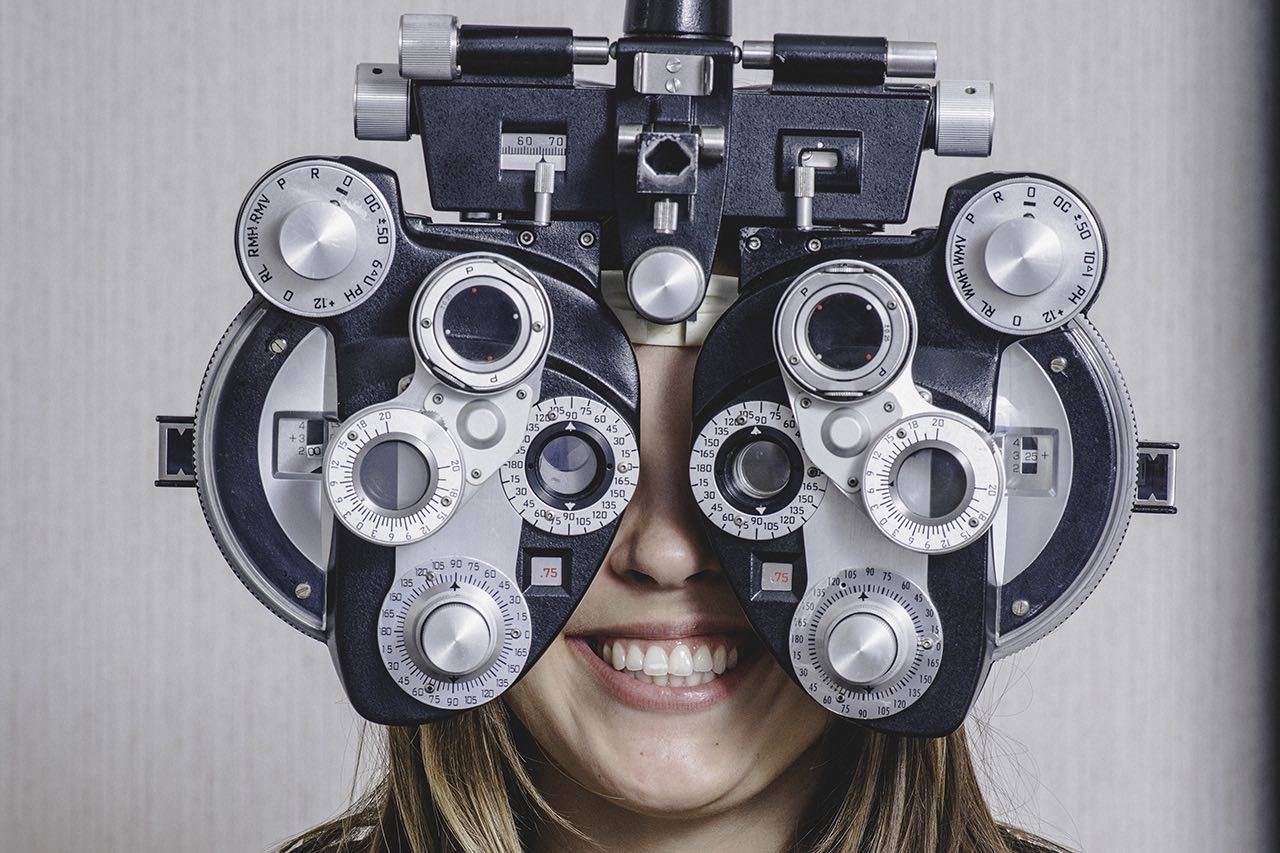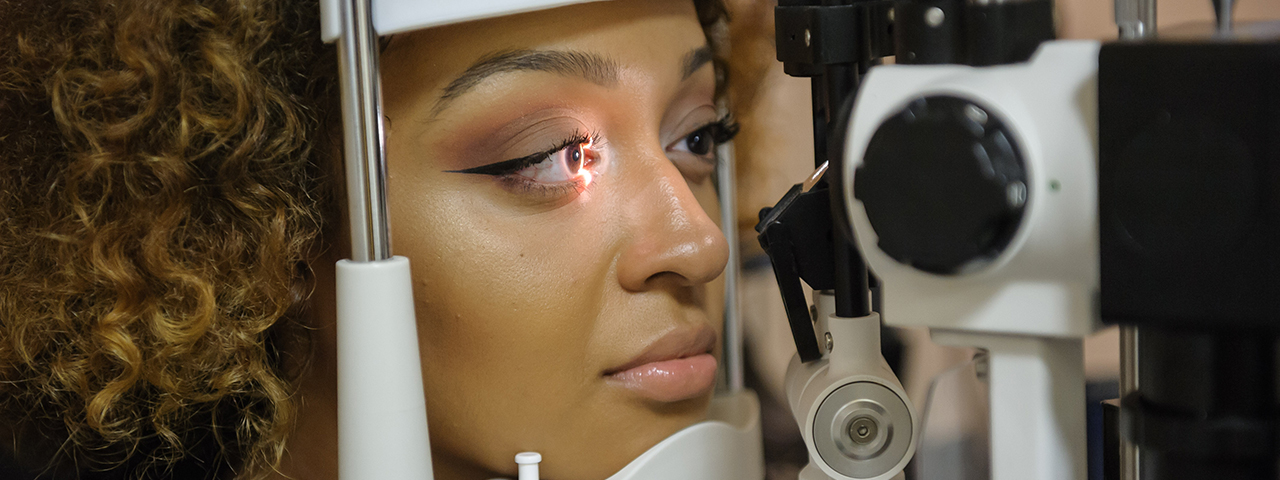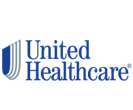Your Comprehensive Eye Exam in Glendale, CO
A comprehensive eye exam includes a number of tests and procedures to examine and evaluate the health of your eyes and the quality of your vision. These tests range from simple ones, like having you read an eye chart, to complex tests, such as using a high-powered lens to examine the health of the tissues inside of your eyes.
Here are some tests you are likely to encounter during a routine comprehensive eye exam:
Our team of eye doctors and certified opticians in Denver, CO are all highly trained in performing a range of eye tests and exams. In addition to basic vision screening, we’ll conduct eye health evaluations, prescribe eyeglasses and contact lenses, and check for any signs of ocular disease.

Retinoscopy
This test helps your doctor get a good approximation of your eyeglasses prescription. For retinoscopy, the room lights are dimmed and an instrument containing wheels of lenses (called a phoropter) is positioned in front of your eyes. You will be asked to look at an object across the room (usually the big “E” on the wall chart or screen) while your doctor shines a light from a hand-held instrument into your eyes from arm’s length and flips different lenses in front of your eyes.
Based on the way the light reflects from your eye during this procedure, your doctor can get a very good idea of what your eyeglasses prescription should be. This test is especially useful for children and non-verbal patients who are unable to accurately answer the doctor’s questions.

Refraction
This is the test your doctor uses to determine your exact eyeglasses prescription. During a refraction, the doctor puts the phoropter in front of your eyes and shows you a series of lens choices. He or she will then ask you which of the two lenses in each choice (“1 or 2,” “A or B,” for example) make the letters on the wall chart look clearer.
Based on your answers, your doctor will determine the amount of nearsightedness, farsightedness and/or astigmatism you have, and the eyeglass lenses required to correct these vision problems (which are called refractive errors).

Autorefractors
An autorefractor evaluates the way an image is focused on the retina, where vision processing takes place, without the need for you to say anything. This makes autorefractors especially useful when examining young children or people who may have difficulty with a regular (“subjective”) refraction. We use automated refractions and subjective refractions together during a comprehensive exam to determine your eyeglasses prescription.

Pupil dilation
Your comprehensive exam may include the use of dilating drops. These medicated eye drops enlarge your pupil so your doctor can get a better view of the internal structures in the back of the eye. Dilating drops usually take about 20 minutes to start working. When your pupils are dilated, you will be sensitive to light, because more light is getting into your eye. You may also notice difficulty reading or focusing on close objects. These effects can last for up to several hours, depending on the strength of the drops used.
If you don’t have sunglasses to wear after the exam, disposable sunglasses will be provided to help you drive home. Dilation is very important for people with risk factors for eye disease, because it allows for a more thorough evaluation of the health of the inside of your eyes.
Often times the Optomap may be used in lieu of dilation.

The Optomap Retinal Exam captures a digital image of the retina, revealing important information and aiding in the detection and diagnosis of serious eye conditions such as diabetic retinopathy, retinal detachments, macular degeneration, and other pathologies such as melanomas. In most cases, Optomap can replace dilation. The Optomap Exam is an additional fee of $35 and is preferred by most patients to avoid the inconvenience of dilation.

Slit-lamp examination
The slit lamp is an instrument that the eye doctor uses to examine the health of your eyes. Also called a biomicroscope, the slit lamp gives your doctor a highly magnified view of the structures of the eye, including the lens behind the pupil, in order to thoroughly evaluate them for signs of infection or disease. With the help of hand-held lenses, your doctor can also use the slit lamp to examine the retina (the light-sensitive inner lining of the back of the eye.)

Cover test
The cover test is the simplest and most common way to check how your eyes work together, and can detect very subtle misalignments (binocular vision) and cause amblyopia or “lazy eye.” The eye doctor will have you focus on a small object at distance while covering each of your eyes alternately while you stare at the target. As they do this, eye doctors observe how much each eye has to move when uncovered to pick up the fixation target.













